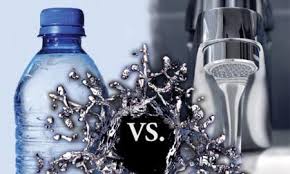Fahmida Choonara | fchoonara@radioislam.co.za
2 April 2023 | 17:00 CAT
2 min read

Photo Credit: Online Magazine Egypt
Last Sunday, Philadelphia residents received an alarming “public safety alert” on their phones urging them to begin “using bottled drinking water” until “further notice.” That came after a local company revealed that it had accidentally dumped thousands of gallons of toxic chemicals into the Delaware River. This sparked a global debate on the difference between tap and bottled water.
Radio Islam International spoke to Humbulani Rangani, a qualified Dietician from the University of Limpopo.
Rangani explained that water, bottled or tap is from the same sources; however, the differences happen during treatment. Bottled water is purified and stored in bottles, ensuring it is impurities-free. Once purified and treated, tap water is sent to reservoirs for distribution to our faucets. During this journey from the reservoir to the taps, it brings in the differences as this is when water can be contaminated.
Bottled water, according to Rangani, can be healthier than tap water as it contains more minerals like calcium, sodium, magnesium, and potassium.
Regarding the safety of tap water for consumption in Gauteng, Rangani stated,” It is very, very safe to drink the tap water here in Gauteng because the water has been treated, and it has gone under the process of purification and has been made to be safe for consumption.”
Speaking on contamination, similar to the spill in Delaware, Rangani said consumers should stop using the contaminated water immediately and could choose to use water from a different source or bottled water.
Rangani also explained how bottled water also differed depending on the brand. Some waters may contain higher or lower levels of minerals, and the water’s alkalinity will affect the taste. He added that the taste difference between bottled and tap water is due to the increased amounts of minerals in bottled water.
Listen to the full interview with Ml Ahmed Waja here.







0 Comments